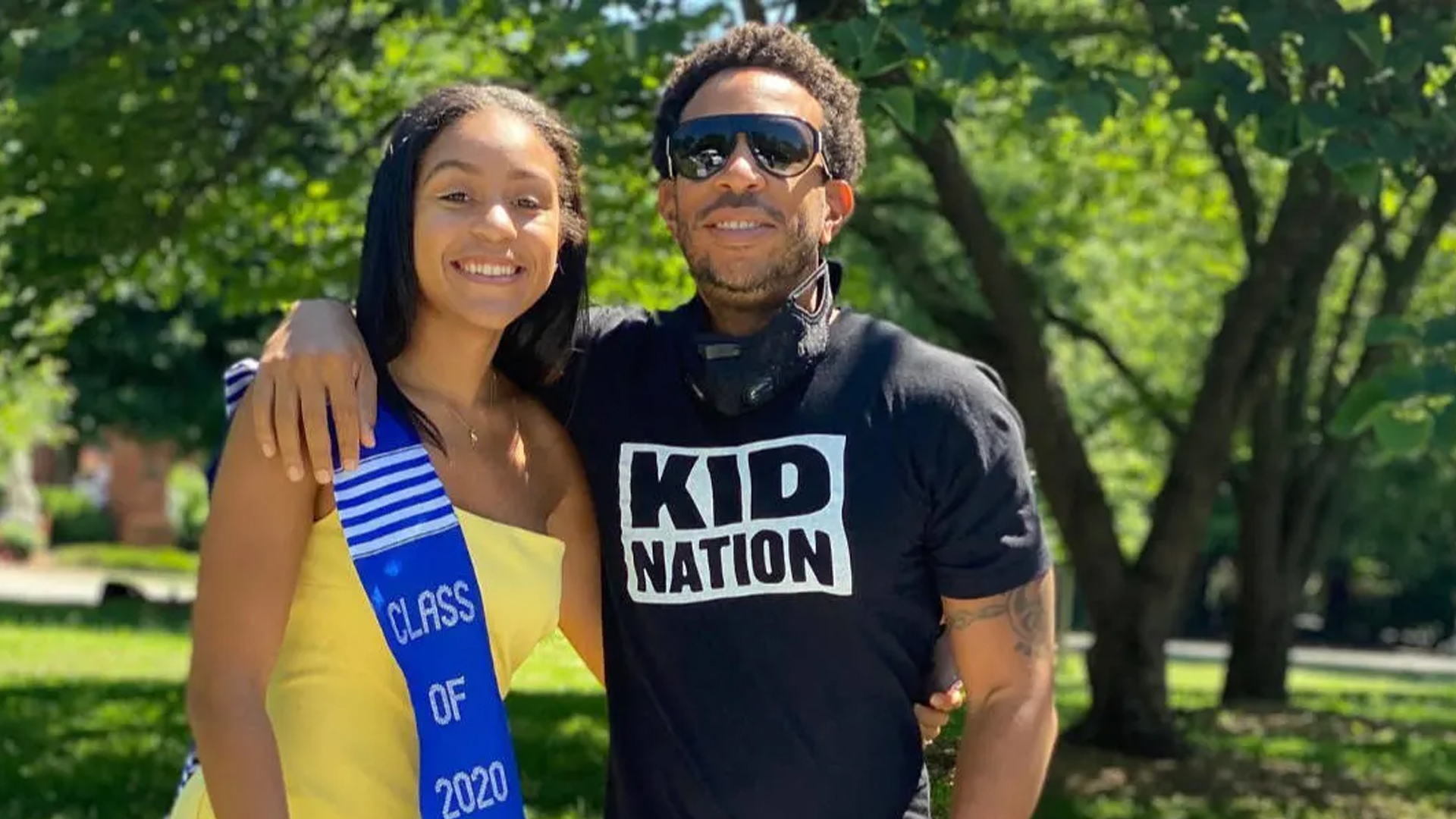"If you don't evolve, you'll evaporate," a phrase that rapper, entrepreneur, and multi-faceted artist, Chris Bridges better known as his pseudonym Ludacris wholeheartedly stands by. As a powerhouse storyteller and wordsmith, his talents extend beyond a studio's sound booth to record a top hit. He continues to stand the test of time to establish a diverse career outside of the hip-hop industry, catapulting his star power into various territories.
Karma's World, his latest venture with Netflix, has been more than a decade in the making and was inspired by his oldest daughter, Karma. It is a coming-of-age animated series about a young Black girl finding her voice and using it to change the world. Honing in on topics such as self-esteem, body positivity, discrimination, and the importance of celebrating differences, the Atlanta native set out to ensure both adults and young viewers understand the influence of language and how our words have the power to reflect and affect our world.
In our exclusive interview with the three-time Grammy-winner, Chris 'Ludacris' Bridges discusses being a girl dad of four, his parenting style, the challenges of bringing this coming-of-age musical series to life, and much more.
Dontaira Terrell: What does it mean to you to bring Karma's World to young viewers, but especially young Black viewers?
Chris Bridges: There are no words that can explain how happy I am to bring this to young Black viewers, young viewers, all out, all around the world, just because I know that it's going to have an impact on their life. That's going to change the trajectory for the better— positivity and helping them with self-confidence and self-empowerment, so many different things. And that's what I set out to do here. I'm ecstatic.
DT: As you should be, congratulations! The topics discussed in the series were real-life issues. I'm not a mom, but I have nieces and nephews, and that middle school drama that's real! What would you say was the biggest challenge you initially faced with bringing Karma's World to life?
CB: Oh my goodness! This [Karma's World] is over 14 years in the making. I faced the challenges the entire way, from figuring out the animation to getting the songs right to where they were meaningful and even down to the storylines—the script's, the characters, and how the world comes together. Every element about this was a struggle at first, but it's the ultimate story of persistence, hard work, and believing in oneself overall, and bringing this to fruition. The timing couldn't be more perfect. So I had to learn patience as well.
DT: I'm glad you said that because many times people think that it happens overnight or, for someone like you, that you already have your foot in the door, and it just happened. On another note, as a songwriter, you're both a wordsmith and a storyteller, which is a really powerful way to connect with people. So can you recall an early experience when you realized your daughter Karma understood that language has power?
CB: Oh, 100%. I think even us working through this. Karma's World came about because she said she wanted to rap at six years old, and she would always come and interrupt me in the studio. I had to sit her down and say, 'if you want to rap, you have to talk about what goes on in your world.' As we started coming up with some of these songs, she realized that listening to them and other people could have a powerful impact. So she started realizing the power in her words. And again, it all comes full circle because that's what this whole animation is about.
DT: Wow. So early six years old, and she already understood the power of her words?
CB: Absolutely. Kids are so much more intelligent than we give them credit for, sometimes.
DT: That's definitely true! And being a girl dad times four, how would you describe your parenting style?
CB: My parenting style is I try to be as understanding as possible. I try to listen as much as possible. The best thing about having four girls is that you have to understand they're all unique. You can't use the same methods on each one of them. Everyone is different, and you have to kind of parent accordingly on certain things. There are also certain things across the board that have to be understood. But I think that's one of the biggest things is they each learn differently. Ultimately, it's about showing each one compassion, understanding, and love.
